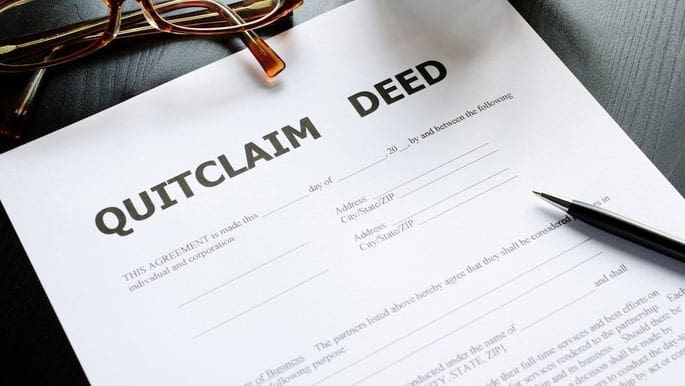- Affordable Legal Assistance
- 505-6JAGLAW
- 727-386-9654
- info@jenniferagarner.com

Failure to Provide Notice of Intent to Retain Security Deposit After Eviction
January 31, 2019
Quitclaim deeds are one of the simplest and fastest methods of transferring property between two people who trust each other. The ease and simplicity of transfer is favored among friends and family due to the speed with which the change can be conducted; but it does come with a price: little to no warranty.
This is why most people only use quitclaim deeds for specific things, such as adding a significant other to the deed, passing a house from parent to child, or even fixing a typo. Since these events usually involve trusted parties, the warranty issue typically isn’t a problem. Before you rush out to get a quitclaim deed for your family home however, you may want to think twice if you have a mortgage.
What’s in Your Mortgage’s Fine Print
If you have a mortgage on your home, you probably didn’t read the hundreds of pages you had to sign in order to receive that mortgage. The paperwork for a mortgage can be extremely long and tedious to read. That fine print often includes something you should be concerned about if you’re planning to use a quitclaim deed to transfer your home.
Most mortgages include a few paragraphs stating that if you transfer the title of your home, you will default on the mortgage. In other words, the mortgage company can demand that you pay the entire mortgage immediately, or within 30 days of defaulting.
Most of us can’t afford to pay off a mortgage in that amount of time, or we wouldn’t have taken out a mortgage in the first place. It can be a huge burden to the homeowner, and may even result in the loss of the house, especially if it’s a fairly new mortgage.
Be Smart Before Using a Quitclaim Deed
Fortunately, most mortgage companies choose not to enforce all the rules set down in their fine print, at least when it comes down to title transfer. If you want to use a quitclaim deed in order to transfer the mortgage to someone you care for, start by making a call to your mortgage loan office, and ask whether this is something they will allow.
The person you want to transfer the deed to may need to go through the same approval process you went through in order to get the initial loan. This is especially true if the mortgage is being transferred as well. In some cases, you may still be held fully responsible for the loan.
For most people using a quitclaim deed, this isn’t a big deal. If you’re simply adding a spouse to the title or fixing a typo, then you’ll still be paying the loan anyhow, but it’s good to be aware of all possible options before transferring your home.
Quitclaim deeds are a great option for fast transfers among people you trust. If you plan to use one for your home and you still have a mortgage on it, talk to your lender to make sure there won’t be any unpleasant side effects as a result of the transition.


